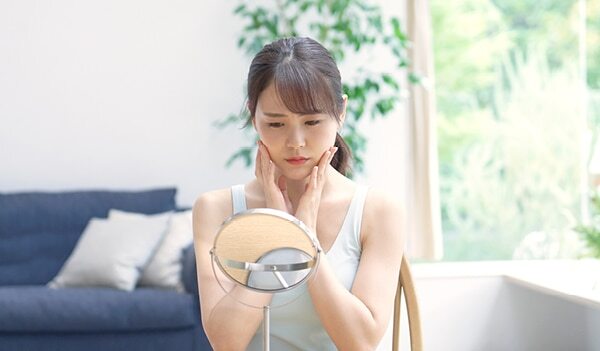At some point in our lives, we've all found ourselves in front of the bathroom mirror, examining a strange little red or raised bump around our lips. Most of the time, we brush it off as a pimple. But are there times it could be more? Welcome to the cold sore vs pimple debate. We hate to be the bearers of bad news – but chances are, it might be a dreaded cold sore. Cold sores, AKA fever blisters, are tiny fluid-filled blisters that form in a cluster on or around the edge of your bottom lip. Before the blisters appear, you may feel a tingly, itchy, or burning sensation in the area. While they may look interchangeable, pimples and cold sores actually have a few key differences that set them apart. To shed some more light on this, we reached out to celebrity dermatologist and founder of Ambrosia Aesthetics, Mumbai, Dr. Niketa Sonavane . She explains, "Pimples never appear directly on the lip. A cold sore is most likely the cause of a blemish in the middle of your lip. Pimples have pus, whereas cold sores have clear fluid in blisters. Pimples and cold sores can both heal on their own. Cold sores are caused by a virus called herpes simplex 1 (HSV-1), whereas pimples are caused by bacteria called C.acnes." In most cases, you can tell them apart yourself! So if an unwelcome pimple near your lips has got you worried, we're here to put your mind at ease. Here are the easiest ways to tell pimples and cold sores apart, without booking an emergency trip to the doctor.
Natural Argan Oil & Lavender Sulfate Free Anti-Frizz Shampoo - 400ml
₹658
₹658
SHOP NOW








